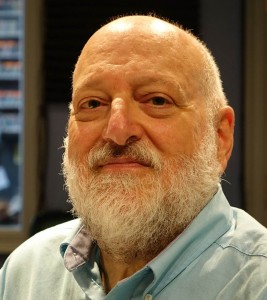After OffBeat published a letter by a recently-departed WWOZ staff member, the powers-that-be who own and oversee the station—the board of the New Orleans Jazz & Heritage Foundation—finally took a look at the deteriorating situation at the station. Seven longtime staffers have left WWOZ—some under duress, reportedly, by then-general manager David Freedman. The icing on that cake was the resignation on April 1 of Program Director Dwayne Breashears, who had been with the station for 18 years, a crucial time for the station—right before its spring fund drive and the big push it puts out for members and goodwill (meaning donations) during Jazz Fest.
Today it was announced that David Freedman stepped down as General Manager; his new title is Chief Strategic Officer (focusing on “strategic planning, assisting with fundraising, and community engagement”). A new Chief Operating Officer, Arthur Cohen, has been hired to run the station and will have complete responsibility for the management of WWOZ, including all content, operational fundraising and budget management. Cohen, 69, was lured out of retirement in January 2016 and also was hand-picked by Freedman as Interim COO, but now has taken on the job full-time.
Cohen comes with an impressive resume: he has 38 years’ experience in public radio, having most recently served eight years as president of the Public Radio Program Directors Association. According to press release from ‘OZ Cohen has stated that “The chance to help out this unique radio station, help serve the unparalleled music community of this city, to offer a career’s worth of knowledge to what is arguably the most successful community radio station in the country” is an opportunity that he could not pass up. Cohen’s career began in community radio, where he was the first General Manager of KVMR-FM in Nevada City, CA, and then at KRBD-FM in Ketchikan, Alaska. He served on the board of the National Federation of Community Radio. He also has worked as an executive at some of the most important stations in America: WNYC-FM in New York City, Minnesota Public Radio, and WETA-FM in Washington, D.C.
“In my heart, I’ve always been a ‘community radio guy,’” says Cohen. “I first fell in love with New Orleans in 1967 while stationed at Keesler Air Force Base in Biloxi. Whenever possible I came to New Orleans and helped out at a cousin’s record store on Chartres in the French Quarter, and got to meet many of the incredible musicians of the city. I am excited to be at a station that is so integrally connected to the roots of New Orleans’ music and that expresses that connection in so many ways every day.”
Freedman inarguably took WWOZ to a level that no one dreamed a little community station could attain. He saw that radio media was changing drastically and he moved to position WWOZ to take advantage of the web. In 1995, WWOZ became one of the first stations to stream its programming on the internet. It enjoys a page on the Library of Congress website featuring the station’s extensive recordings of live music performances by local musicians. WWOZ recently has created a very active video team—recording live music in the station’s performance studio and throughout the community.
But many at the station and even longtime listeners have questioned the station’s growth strategies and think that WWOZ has gotten away from its core mission of broadcasting and supporting live music in order to put its resources into growing the station into the be-all, end-all of New Orleans music. The station does not pay the on-air “deejays” who produce most of the station’s daily content. However, it does have a very strong video production and internet staff (total current paid staff at the station currently numbers 21).
The station, in its years when Freedman first served as General Manager (he took over in 1992 when the station was seriously in trouble), was a place where volunteers and staff worked together for the love of music, not to create an empire. “We need to stick to our core values,” said one former volunteer. “The thing that makes WWOZ attractive and popular is the fact that we are very focused on New Orleans music. We’re passionate about New Orleans music. Why do we need WWOZ to go to Chicago to broadcast the Grateful Dead, or the Panama Jazz Fest? Why do we need to hire someone from New York to start a video operation?” Freedman was ambitious—probably to a fault—and appeared to want to create his own personal kingdom. The station’s growth ironically, seems to have been his undoing, as he was apparently not adept at managing staff, and indeed, forced dedicated staff members and/or volunteers out when they disagreed with his policies and strategies. Some staff people also mentioned anonymously that Freedman was rarely ever at the station, and managed “in absentia.”
So, obviously, it was time for a change; staff and volunteers revolted, and David Freedman had to go as the day-to-day manager. It was the Peter Principle demonstrated, in spades.
Hopefully, with new leadership, a refocused strategy for the station’s growth, a mending of fences with the dedicated volunteers and staff who put so much passion and love into keeping the station alive and well, ‘OZ will return to its glory days.
The king is dead; long live WWOZ.





